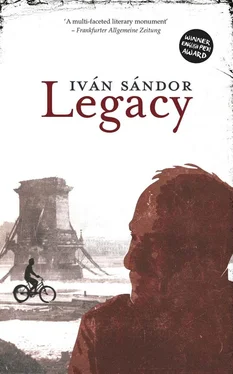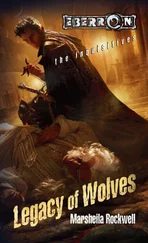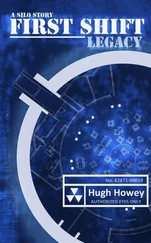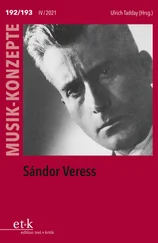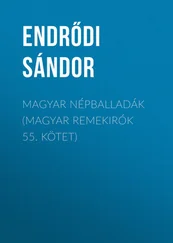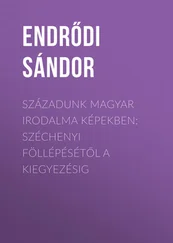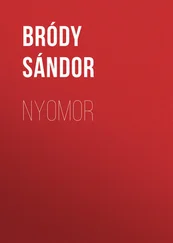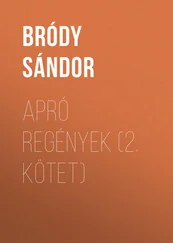The physicist notices that the warden is no longer in the bathroom — he had scooted out with the man from the guard on the gate. He says it over again, just as with the chess …
Mate in two moves, isn’t it, I say.
Two moves, he says. That’s not bad at all. If you have patience you could make a useful player.
Friedrich Born, the authorized representative of the ICRC in Budapest, notes:
On 14 January an Arrow Cross stormtrooper unit broke into the Orthodox Hospital on Városmajor Street. Patients and staff were bundled out into the yard in groups of five or ten and shot to death, those who were lying in their beds being shot in bed. One hundred and fifty people were murdered, including 130 patients, the rest being doctors, nurses or other hospital employees.
I go down to the gate.
The warden is giving instructions to the men who are just about to take over the watch. I ask him if it is all right to go out in front of the gate. He says, Be careful.
Houses are smoking in József Katona Street, the next road. An Arrow Cross patrol is approaching from the right. A German panzer has parked at the junction with the Outer Circle, with German and Hungarian soldiers swarming around it. An officer is shouting out orders — even though his voice does not carry as far as our gate I can see from his hand gestures that he is giving orders. A machine gun is blazing away from one of the upper windows of the Comedy Theatre, but I cannot see who they might be shooting at from there. The two Arrow Crossers turn at the corner and hurry away in the direction of Pozsonyi Road, the parallel street two blocks nearer the river. Father is calling. I should get back inside. The tank starts moving but does not come back up Pannónia Street and instead turns off towards the Western Station. Now a second machine gun is chattering from another window of the Comedy Theatre. Father and the warden also step out on to the pavement. The gate of the house opposite opens. That is not a yellow-star house. Two women with pails come out. The warden shouts over to enquire whether they, too, have no drinking water. They reply that they haven’t but it is still being distributed in Holló Street, and they’re going to try to reach that.
In the stairwell, the warden makes a renewed attempt to seek out volunteers. There’s no curfew, says Father, but you can’t go out wearing a yellow star. Agreed, one can’t go out with a yellow star, says the warden, but one can have a go without one. The patients and children have to have drinking water.
Gyuri is standing by the stairs; I have no idea where he came from. Right then, shall we go? he asks. Are you willing to take it on without a star? the warden asks. Why, do you see me wearing one? He is again wearing the rust-coloured pullover; it is pretty threadbare. It’s risky, says the warden. You can be stopped at any time for a check. Gyuri grins and reaches for his back pocket to haul out a revolver. A few seconds go by and then he pulls out the other revolver from a side pocket. You were a soldier, says the warden. I hope you know how to use them. He checks the cartridge clip of one gun and puts the safety catch on. When we get back you’ll have to let me have the other as well; you may put the others at risk if a raid is made on the house and they come across it.
We go upstairs. The warden still shouts out in a renewed effort to seek out volunteers. The doctor appears from one of the apartments. We need you here, says the warden.
The physicist is standing before the door to our apartment, two buckets in his hands. Father says farewell to Mother. He, too, is given two pails. He does not say farewell to me, so I ask him if I can go as well. It’s not far, I say. Mother grabs me by the hand and pulls me beside her. I cannot see Vera anywhere. The warden also brings two buckets. He tells his wife, Five minutes there, five back, and even if one has to queue up for the water they’ll be back in half an hour or an hour. In the meantime do whatever is necessary on his behalf; she can count on the doctor and the guards at the gate. Aunt Klári purses her lips. I don’t know how she manages to speak like that or, rather, not speak so much as, say, Józsi! Now it is me who is clutching Mother’s hand, not she mine. Father smiles, Hear that, he says. Five minutes there, five back, and even if we have to wait then half an hour or an hour at most. Once I get back we’ll collect some chicken shit, and I’ll daub that on my face to make my beard grow at last.
Four of them take eight buckets. As we accompany them down the stairs I work out that this will be between 250 and 300 millilitres per person. If it’s distributed carefully that will be enough for two days.
We don’t say goodbye at the gate.
The warden goes first.
Gyuri is carrying both buckets in his left hand, his right hand thrust in his pocket. The physicist seems to be explaining something to Father, gesticulating as is his habit, with the buckets dancing around in his hands. Father is nodding.
Aunt Klári gives Mother a kiss. Mother says we had better go up and not leave Vera on her own. Aunt Klári gives instructions to the guards in a voice that’s steelier than the warden’s. There are four guards on the gate, and their leader salutes her with a hand raised to his beret. Yessir! he says to Aunt Klári.
Vera is playing paper-scissors-stone and allowing the little girl to win occasionally and rap her on the knuckles. Clever girl! You win, she says. The little girl has a very serious face while she plays. She does not get angry if she fails to hit Vera’s hand; she is very attentive. She’s got good reflexes, says Vera, her voice like an adult’s.
In the vague hope of being able to see Father and the other three from the window I go up to the fourth-floor apartment that we vacated. I cannot see them. They may well have already reached József Katona Street, perhaps just turned into it. The roof of the Comedy Theatre is smoking. In Tátra Street the upper storeys of the houses are alight. A platoon of soldiers is drawing back from the direction of Csanády Street by St István Park. As far as I can see, a Hungarian officer is yelling orders to a mix of Germans, Hungarian regulars and Arrow Crossers. Two German panzers arrive from the Outer Circle, behind them a few SS with submachine guns, about half a company of police and gendarmes blazing away from gateways. The tanks are firing rounds of shells.
I go over to the other window of this corner apartment from which I can get a view of both Pannónia and Főnix Streets. A thin strip of the riverside houses is also visible above the rooftops. Far away in the distance, on the Buda side of the Danube, is the castle. One of its wings is in flames. It seems the entire city is smouldering. A fighter-bomber swoops in so low that I can see the pilot for a few seconds. It is being fired at from Margit Bridge and crashes after being hit.
I can’t tell if the underside of the sky is ruddy from fires behind Castle Hill or the sunset.
A dense cloud of smoke is floating above the Comedy Theatre and is spreading over the whole city.
The reddish light in the west is not caused by flames; it’s different. Flames flicker, whereas this light illuminates everything, casting a ruddy glow on the smoking house roofs and being reflected from the walls in the twilight. Burning roofs could not be playing in such a purple colour. Where is the sun? Where can that all-illuminating light over the ruins still be spreading from? I can hear the scuttling of rats from over in the corner of the room; they have come up a fair old way to get here; they have not contented themselves with the sewers, cellars and stairway passages. Sounds can be picked out better in the all-illuminating twilight, otherwise I would most certainly be unable to hear the scuttling of the rats for the detonations and rattling of machine guns. It’s as if everything were becoming brighter yet, meanwhile, the smoke is swirling more densely around everything and ruins are piling up on ruins, as if something I am seeing now that I had never understood was suddenly comprehensible; as if the piling up of ruins on ruins were the goal, which is incomprehensible and yet, if I nevertheless grasp that this is the point of it, I may perhaps make progress. This evening while we are playing chess, or even if there is no chess game, I am going to talk this over with the physicist. I would like to tell him that here, at the window, I have a feeling that I have seen a bit of what he said about the beginning and end of things meeting. He had been explaining something of the kind to the warden. In my mind I don’t call him Uncle Laci but the physicist. One has to begin at the beginning: I think that is what he was explaining. Although who can know? No one can know where the beginning is. So it’s not just me; others are also ignorant of where the beginning is. That does not set my mind at rest. There’s no point in seeing the end if I can’t find the beginning, only the fact that we are in it. If there were an opportunity I could say this nicely to the physicist; everything around me is so familiar, I am so much in it. The machine-gun barrel of the German panzer is rising, the turret revolving, the machine gunner cannot see up here. He fires a burst. A fragment from the wall bounces on to my hand, and my wrist starts to bleed, so I tie my handkerchief round it. It is not painful.
Читать дальше
